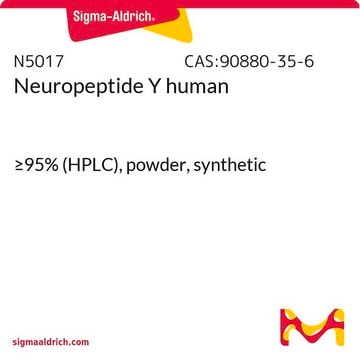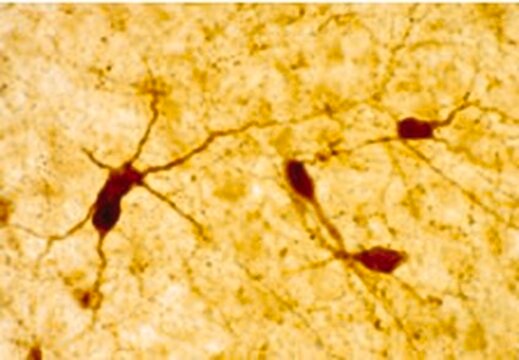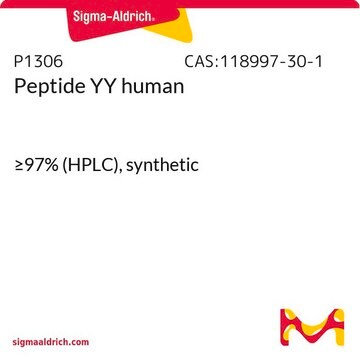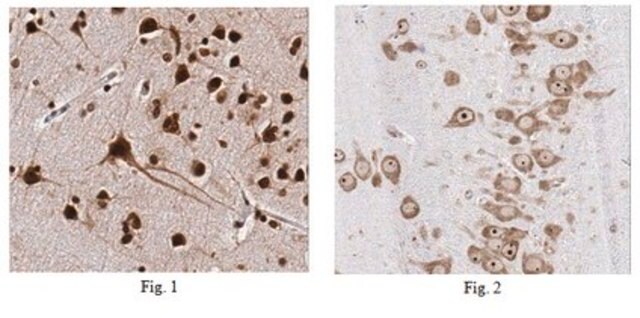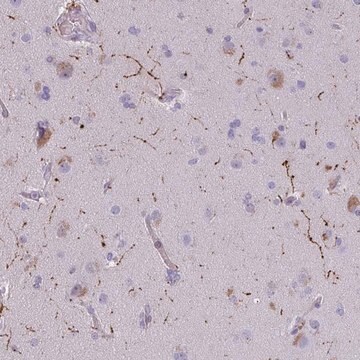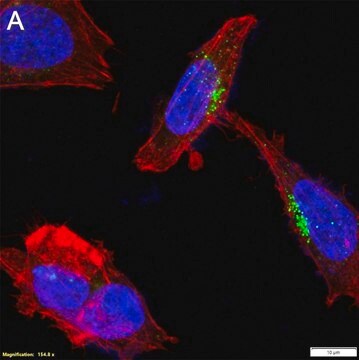N9528
Anti-Neuropeptide Y (NPY) antibody produced in rabbit
whole antiserum
Synonym(s):
NPY Antibody - Anti-Neuropeptide Y (NPY) antibody produced in rabbit, Npy Antibody
About This Item
Recommended Products
biological source
rabbit
Quality Level
conjugate
unconjugated
antibody form
whole antiserum
antibody product type
primary antibodies
clone
polyclonal
contains
15 mM sodium azide
species reactivity
rat, sheep, pig, human
packaging
antibody small pack of 25 μL
technique(s)
: suitable using suitable for IHC on rat brain perfused with 4% paraformaldehyde
indirect ELISA: 1:5,000-1:10,000 using using peptide coating at 0.5-1 μg/well in 0.05 M carbonate/bicarbonate buffer, pH 9.6, and pNPP as substrate
UniProt accession no.
shipped in
dry ice
storage temp.
−20°C
target post-translational modification
unmodified
Gene Information
rat ... Npy(24604)
General description
Specificity
Immunogen
Application
- single-labeling immunocytochemistry
- immunofluorescence
- immunostaining
- dot blot
- radioimmunoassay (RIA)
- enzyme-linked immunosorbent assay (ELISA)
Biochem/physiol Actions
Disclaimer
Not finding the right product?
Try our Product Selector Tool.
Storage Class Code
12 - Non Combustible Liquids
WGK
WGK 3
Flash Point(F)
Not applicable
Flash Point(C)
Not applicable
Choose from one of the most recent versions:
Certificates of Analysis (COA)
Don't see the Right Version?
If you require a particular version, you can look up a specific certificate by the Lot or Batch number.
Already Own This Product?
Find documentation for the products that you have recently purchased in the Document Library.
Customers Also Viewed
Our team of scientists has experience in all areas of research including Life Science, Material Science, Chemical Synthesis, Chromatography, Analytical and many others.
Contact Technical Service
